CMN 216
Communication Revolutions

1. Course Description
Both old and new communication technologies, through “revolutions” or epochs of change, have transformed modern culture. From the origins of language and the invention of communication technologies, such as writing, the printing press and the Internet, this course explores the origins, reception and uses of new forms of communication in their historical contexts with attention to their social, political, cognitive and technological impacts.
Last Revised
Prerequisites
Note: This course is available only to Professional Communication and Creative Industries
Delivery
Lecture: 3 hours
2. Course Objectives & Learning Outcomes
- To understand the way communication functions in the construction and maintenance of power relations
- To acquire a working knowledge of functional grammar
- To demonstrate an ability to conduct a critical discourse analysis
3. Topics Covered
- Orality and literacies
- Temporality
- Information
- Networks
- Visual and material culture
- Societal implications of technological change
- Theories of technology, concepts and critical approaches
All topics will be covered, but not necessarily in the order listed above
4. Teaching Method
Lectures and discussion
Teaching will be conducted by lecture and discussion. Students will be expected to contribute to the in-class dialogue and to participate in group activities requiring them to compare, contrast, discuss and debate materials derived from lectures and readings.
Graded Assignments
Students will prepare a minimum of two written assignments, a group video presentation or media-based assignment such as a podcast, and write weekly readings quizzes or reflections. In addition, there may be weekly assignments.
5. Course Materials
Course reading materials will be posted in electronic form in e-Reserve on D2L brightspace
Additional course reading materials will be posted in electronic form in e-Reserve on D2L Brightspace
6. Policy
6.1 University Policies
Students are required to adhere to all applicable university policies found in their Online course shell in D2L and the Course Outline Policies.
6.2 Print and Digital Copying Guidelines:
Toronto Metropolitan University complies with Canada’s Copyright Act which protects both creators/owners and users of copyrighted materials. Students should familiarize themselves with TMU Copyright policies and procedures, and contact the Copyright and Scholarly Engagement Librarian at copyrt@ryerson.ca for questions, concerns and clarification of the copyright rules.
6.3 Turnitin.com
Turnitin.com is a plagiarism prevention and detection service to which Toronto Metropolitan University subscribes. It is a tool that helps instructors determine the similarity between student work and the work of other students who have submitted papers to the site (at any university), Internet sources, and a wide range of books, journals, and other publications. While it does not contain all possible sources, it gives instructors some assurance that students’ work is their own. No decisions are made by the service; it generates an “originality report,” which instructors must evaluate to judge whether something is plagiarized.
Students agree by taking this course that their written work will be subject to submission for textual similarity review to Turnitin.com. All submitted papers will be included as source documents in the Turnitin.com reference database solely for the purpose of comparing the similarity of such papers. Use of the Turnitin.com service is subject to the terms-of-use agreement posted on the Turnitin.com website. Students who do not want their work submitted to this plagiarism detection service must, by the end of the second week of class, consult with their instructor to make alternative arrangements. Even when an instructor has not indicated that a plagiarism detection service will be used, or when a student has opted out of the plagiarism detection service, if the instructor has reason to suspect that an individual piece of work has been plagiarized, the instructor is permitted to submit that work in a non-identifying way to any plagiarism detection service.
6.4 Email Communication
Toronto Metropolitan University requires that any official or formal email communication from students be sent from their official Toronto Metropolitan University electronic accounts.
6.5 Video and Audio Recording
No video or audio recording is permitted in class without the express permission of the instructor.
7. Learning Management System
Toronto Metropolitan University supports Brightspace by D2L as its official Learning Management System. University Policies governing Brightspace have been documented at the Courses @ Toronto Metropolitan University Privacy and Security website.

